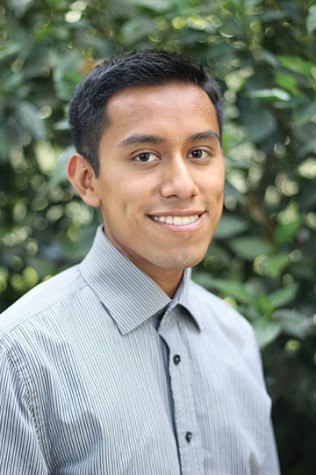San Diego State recently received a $1.25 million grant to fund a project that will prepare students to become school counselors, psychologists and social workers in order to assist foster youth with special education needs and diverse backgrounds.
The grant from the U.S. Department of Education will allow graduate students of school psychology, school counseling and school social work programs to be part of Project CARES, an acronym for Culturally Affirming Responsive Education Specialist.
The project, beginning in January, will allow nine students–three from each discipline–to be trained for 18 months at a time.
Project CARES involves fieldwork that includes working directly with foster children, training to become court-appointed special advocates or CASAs, being part of a seminar; professional development and advocacy training to help parents advocate for foster children.
Director and Associate Professor of SDSU’s Department of Counseling and School Psychology program Tonika Duren Green said approximately 65 percent of the funding will go toward scholarships for the students to finance tuition, books, travel to conferences and some of the training.
Green, who wrote the grant, said children in foster care have been in her heart and on her mind for a long time.
As a child, Green lived with her grandmother, a single foster parent who took care of 10 foster children in the course of Green’s time with her.
“I saw them in and out and the struggles they went through,” Green said. “Even as a child, I had a passion for understanding the circumstances that they were dealt.”
Green believes Project CARES is special because it helps foster children who are often overlooked.
“It’s specifically devoted to children in foster care who have special needs, who are children with disabilities and who are also from diverse backgrounds,” Green said. According to Green, approximately 30 percent of children who are in foster care are children with disabilities. Of those, 60 percent are from diverse backgrounds. Many of the children in foster care from culturally and linguistically diverse backgrounds do not get adopted or the services they need.
“There’s a strong need to improve the outcomes for them,” Green said.
SDSU psychology graduate student Nicole Edwards became interested in working with foster youth after hearing about the program.
“I’ve always wanted to work with students with disabilities, but I hadn’t ever thought about foster youth needing these services too. This is a population I never even thought about working with,” Edwards said.
Meanwhile, psychology graduate student Liz June has worked with high school students that are either going through the foster care system or have been through it and she’s seen the dramatic effects it has on them.
“Not only having the knowledge and skills myself, but being able to share that with others and the school community so that people are more informed on how to better impact this population,” June added.
Green hopes this program will be of equal value to the graduate students as it is to the foster youth.
Late rapper Tupac’s poem “The Rose That Grew from Concrete” is an analogy of how Green hopes the program will impact these children. The poem speaks metaphorically about the potential for growth in non-nurturing circumstances.
“Foster youth are in these dire situations where they’re unable to grow. It’s like these roses in concrete,” Green said. “Our hope is that … we’re creating a situation that is a garden where they can actually grow, be watered and where there’s sunshine.”
Green said in her twelve years at SDSU, she doesn’t remember a grant received by her department gathering this much attention before.
“I think it’s because of the need. It’s something that’s needed in our society,” Green said. “I’m humbled by it, but I’m also surprised.”
Half-jokingly, she added, “I’m expecting a call from President Barack Obama any day now.”








